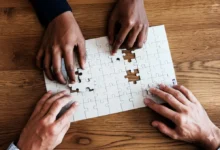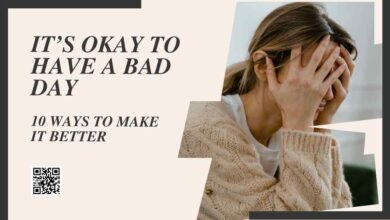Radical Accountability: Is Owning What’s Not Your Fault the Key to Unstoppable Growth?
Ditch the Blame Game & Unlock Your Potential: Learn How Radical Accountability Transforms Problems Into Power.

Think of a project you poured your heart into suddenly fails.
The market shifted, a key supplier dropped out, and despite your best efforts, you’re left with a mess. It’s easy to point fingers, right?
But what if, instead, you took complete ownership, even for the things beyond your control?
That’s the power of radical accountability.
Key Takeaways:
- Radical accountability is about taking ownership, even when things aren’t your fault.
- Shifting from blame to responsibility unlocks your problem-solving potential.
- Practicing radical accountability leads to personal and professional growth.
Radical accountability goes beyond simple responsibility. It means you own the outcomes, not just the actions.
It’s about taking charge, even when things are outside your direct control. It means saying, “This happened, and while I may not have caused it, I own fixing it, learning from it, and preventing it from happening again.”
The Mindset Shift: From Blame to Responsibility
Blaming others is a natural human reaction. We instinctively want to protect ourselves, to deflect responsibility when things go wrong. It feels good in the short term, maybe even justified. But blame is a dead end.
Why Blaming Holds You Back:
- It’s disempowering: When you blame, you give away your power to influence the situation.
- It stifles growth: You can’t learn from your mistakes if you’re too busy pointing fingers.
- It damages relationships: Blame creates conflict and distrust.
Responsibility, on the other hand, is empowering. It puts you in the driver’s seat. It says, “Okay, this happened. What can I do about it?”
Internal vs. External Locus of Control
Think of it this way: people with an internal locus of control believe they have control over their lives and outcomes.
People with an external locus of control believe that external forces control their lives.
Radical accountability pushes you towards an internal locus of control, even when external factors are at play.
According to a study in the “Journal of Personality and Social Psychology,” individuals with a strong internal locus of control tend to be more proactive, resilient, and successful.
Growth Through Ownership of External Factors
It might seem counterintuitive to own things outside your control. How can you be responsible for a global pandemic, a sudden economic downturn, or a competitor’s actions?
You can’t control these things, but you can control how you respond to them.
Turning Obstacles into Opportunities:
- Identify the External Factors: Acknowledge the things influencing your outcomes.
- Focus on Your Response: What actions can you take, given the circumstances?
- Problem-Solve Creatively: How can you adapt, innovate, or mitigate the impact?
For example, a business facing supply chain issues due to a natural disaster can’t control the disaster, but it can find alternative suppliers, adjust production schedules, or communicate proactively with customers.
This proactive approach not only solves immediate problems but also builds resilience and adaptability for the future.
Radical Accountability in Action: Examples
Let’s look at some real-world examples of radical accountability:
- Leadership: A CEO whose company misses a quarterly target doesn’t blame the team or the economy. The CEO takes responsibility for the overall strategy and communication, identifies areas for improvement, and implements changes.
- Sales: A salesperson facing a market downturn doesn’t blame the economy for low sales. The salesperson takes ownership of lead generation, refines the sales pitch, and seeks out new market opportunities.
- Teams: A sports team loses a game. Instead of blaming one player, the team takes responsibility as a whole, examining their strategy, communication, and execution to learn and improve.
In each of these cases, taking ownership, even when external factors are involved, leads to constructive action and positive change. It fosters a culture of continuous improvement and empowers individuals to take control of their destinies.
Cultivating Radical Accountability: Practical Exercises
Here are some exercises to help you cultivate radical accountability in your daily life:
1. Self-Reflection:
- When something goes wrong, ask yourself: “What role did I play in this outcome, even indirectly?”
- Instead of focusing on blame, focus on identifying lessons learned.
2. The “What Can I Learn?” Question:
- No matter the situation, ask yourself: “What can I learn from this experience?”
- This question shifts your focus from blame to growth.
3. Action-Oriented Steps:
- Identify one specific action you can take to improve the situation.
- Even a small step forward can create momentum.
4. Create an Accountability Framework:
- Develop a system for tracking your progress and holding yourself accountable.
- This could involve setting goals, tracking your actions, and regularly reviewing your performance.
Example Table: Radical Accountability in Action
| Situation | Typical Reaction (Blame) | Radical Accountability (Ownership) |
|---|---|---|
| Project Failure | “It was the team’s fault; they didn’t deliver.” | “What could I have done to support the team better?” |
| Missed Sales Target | “The economy is terrible.” | “How can I adjust my strategy to reach more customers?” |
| Team Conflict | “They’re impossible to work with.” | What can I do to improve communication and collaboration? |
Final Thoughts
Radical accountability isn’t about beating yourself up or accepting blame you don’t deserve.
It’s more about recognizing your power to influence outcomes, even when faced with external challenges.
It’s about shifting from a victim mindset to an ownership mindset.
Start small, practice consistently, and watch as it transforms your approach to challenges, unlocks your potential, and empowers you to create the results you desire.
Own it, even when you didn’t do it. The transformation it brings is profound.





